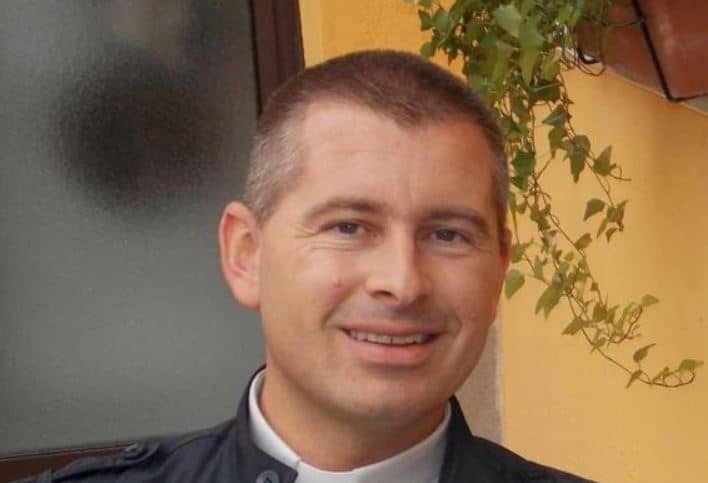When a 39-year-old Polish woman confronted the Catholic priest who she said sexually abused her, using a hidden camera, her first question was: “You destroyed my life … do you know that?”
That moment is also the opening scene of “Tell No One,” a 2-hour Polish documentary just released online.
“I just knew there were other victims, I knew it!”, says the traumatized victim after meeting the priest who abused her. She never reported the crime to anyone, instead keeping the secret for 32 years as the priest had asked her to do.
The documentary’s director, Tomasz Sekielski, depicts what is rarely seen in the media – victims confronting their predators. The result is a powerful portrait of sexual abuse by Catholic clergy in Poland, following the model laid out by Pope Francis – focusing on the victims, their wounds and their pain.
Stirring people up is precisely what the director wants.
I hope that everyone who sees the movie will think about it for several days. And that this film will actually hurt,” Sekielski told the Polish website Onet.
“Harm exposed by the testimonies of the victims in that movie is shocking,” wrote Tomasz Krzyżak, longtime Church commentator, in Rzeczpospolita daily newspaper. “What can I say? – I want to cry with those people whose childhood and life were torn into pieces,” Krakow’s Child Protection Center’s spokesperson Father Piotr Studnicki told Crux, adding: “I was left dumbstruck.”
A second victim, a man, also confronts his abuser in the film, Father Franciszek Cybula. Cybula is a very well-known figure in Poland, as for many years he was the personal prelate of Lech Walesa, legendary leader of the Solidarity union and later President of Poland.
When the victim confronts him, Cybula downplays his responsibility by saying, “You wanted it, you wanted a little closeness.” The victim was in primary school when the abuse happened.
Cybula died just before the movie was finished. The documentary shows his funeral, where the Bishop of Gdansk, Slawoj Leszek Głodź, and many high-profile priests praised the deceased cleric.
The bishop knew about the allegations that were officially reported three months before Cybula’s death.
What the documentary aspires to achieve is compelling the Polish bishops to take the responsibility the Holy See is demanding them to assume.
The film shows a priest who is preaching a retreat to kids. The pastor inviting him did not know the preacher has a lifetime ban on teaching children, which was ordered by a state court.
“Unfortunately, only movies like this one force the hierarchy to face the problem. In this sense, the documentary could help the bishops,” high-profile Polish priest told Crux. “But I am afraid the film will not be enough to wake up the episcopal conference, because bishops will only wake up if Pope Francis requires the resignation of one of them for disregarding the law.”
Commentators in Poland have called the movie a tribute to victims, as it shows the damage done to them for years or even for their whole lifetime.
It also displays Church authorities who prefer to remain silent instead of facing the issue with accountability and transparency. All bishops contacted by the producers refused to comment on those cases, and the documentary shows parish priests terrified and panicking when confronted with the problem.
“Unfortunately, bishops lacked the courage to sit in front of the camera and talk about specific cases of pedophilia among priests,” commented a journalist on Onet about the attitude of Church authorities.
“It only shows how much still needs to be done,” said Studnicki of Krakow’s Child Protection Center.


















